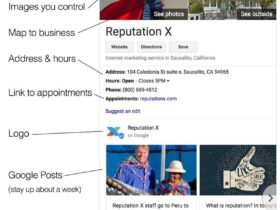In an era where perception often outweighs policy, Google has quietly become one of the most influential voices in the boardroom, not because of a new feature or algorithm but because of what appears when someone searches a name. Search results can significantly affect the executive compensation package for a chief executive officer (CEO), chief financial officer (CFO), or other senior leaders.
Boards, investors, and compensation consultants now recognize that online reputation shapes public opinion and impacts the compensation a company can offer or justify. While corporate governance still emphasizes long-term incentives and pay-for-performance, a candidate’s digital footprint is now a silent stakeholder.
Why Search Results Matter to Executive Pay
Before finalizing an executive compensation plan, board members often review annual reports, registration statements, performance metrics, and now, Google. If a candidate for a C-suite position brings visibility or controversy, it influences risk analysis and total compensation.
Executives with a strong digital presence, verified results, and a clean record may receive better offers, including base salary, stock options, performance shares, and fringe benefits. Those tied to negative content—lawsuits, failed ventures, bad press—often face reduced short-term incentives or extra clauses in their employment contracts.
Some companies also hire an online reputation management company to address negative content and remove unwanted links. These ORM strategies support executive compensation programs by minimizing digital risk before it becomes a financial concern.
Say on Pay and the Power of Perception
Public companies must disclose executive pay under federal securities laws and are subject to say-on-pay votes. These non-binding votes, mandated by the Securities and Exchange Commission (SEC), let shareholders weigh in on executive compensation.
If shareholders believe executive pay outpaces performance, and negative headlines top the search results, a poor say-on-pay vote can follow. Although the summary compensation table complies with SEC rules, reputational concerns can still sway perception.
A New Layer of Due Diligence
Hiring the right executive talent means offering competitive executive compensation plans in today’s job market. Consultants and board members review the past three fiscal years’ performance, stock prices, and governance practices. But now, a Google search is often the first step.
Executives with consistent online profiles, endorsements from their current employer, and no harmful content typically have stronger negotiating power. Their online reputation reflects alignment with business strategies and increases perceived value.
This shift has prompted executives to invest in their digital image—updating social media accounts, publishing articles, and participating in thought leadership—to increase appeal.
How ORM Supports Executive Compensation
Online reputation management is no longer just a PR move. It’s part of talent strategies and compensation planning. ORM services help companies:
- Suppress negative content from search results
- Promote positive online reputation through new content
- Create a uniform digital presence across websites and profiles
- Remove harmful content when possible
These strategies are vital for managing long-term incentives, stock appreciation rights, and other compensation. ORM gives companies more control over perception during compensation planning and disclosure.
Tailoring Compensation to Digital Visibility
Executives arrive at the table with varying digital reputations. Compensation consultants and directors are customizing executive compensation packages based on online visibility.
For instance:
- A VP with strong online mentions and positive reviews might receive club memberships, medium-term incentives, and stock options.
- A CFO with past legal issues may see added legal protections and paid expenses, but less equity or retirement plans.
- A CEO with strong media coverage and investor trust could be offered performance shares tied to company growth over two or three years.
Search results now influence how companies structure base salary, fringe benefits, and pension plans.
Disclosure and Shareholder Trust
Public companies must disclose executive pay in a detailed summary compensation table that shows base salary, bonuses, and other compensation. But legal disclosure is only part of the story.
Investors may question the pay and the board’s judgment if a company registers securities and its executives appear in negative content online. A lack of online transparency can lead to shareholder pushback, even if the numbers align with corporate performance.
On the other hand, executives who manage their digital image—supporting company values, promoting thought leadership, and avoiding bad press—strengthen trust. Their presence supports the board’s compensation decisions.
Final Thoughts: Your Reputation Affects Your Pay
Executive compensation isn’t just about pay. It’s about public image, digital visibility, and perceived alignment with the business. When boards consider compensation packages for a chief executive officer or vice presidents, they also consider what investors will find on Google.
A well-managed digital presence improves an executive’s potential value in the eyes of shareholders, board members, and compensation consultants. It can help secure better equity, stock options, or long-term incentives and protect against reputational risks.
In the world of executive compensation, a strong online presence isn’t just a nice-to-have—it’s part of the strategy. Controlling that narrative is critical for long-term success for companies and executives alike.















